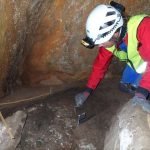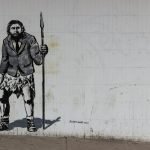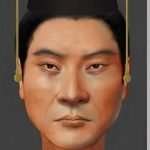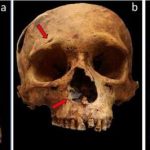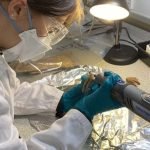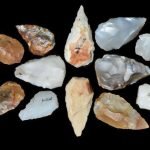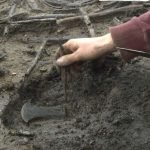Ancient DNA and bones uncover species migration due to past climate shifts
In the serene landscapes of Nordland, Norway, nestled within a unique cave, scientists have unearthed a treasure trove of ancient animal bones that offer...
Ancient sacred circle uncovered in Lincolnshire dates back centuries
In the heart of Lincolnshire, within the shadow of the medieval ruins of Crowland Abbey, archaeologists from Newcastle University have peeled back layers of...
Why did modern humans replace the Neanderthals?
Why did humans take over the world while our closest relatives, the Neanderthals, became extinct?
It's possible we were just smarter, but there's surprisingly little...
Ancient DNA unveils the look of a 6th century Chinese emperor
In a new study, scientists have recreated the face of Emperor Wu of the Northern Zhou dynasty, a prominent Chinese ruler from 1,500 years...
Ancient Peru crisis linked to violence, study shows
During the transition from the fifth to the fourth century BCE, the Central Andes, an area now part of Peru, experienced a period of...
Scientists uncover 7,000-year-old boats in Mediterranean
Over 7,000 years ago, the Mediterranean Sea was bustling with activity as people sailed across its waters in sophisticated boats, a recent study has...
Westminster’s Tudor horse cemetery likely for elite foreign horses
The discovery of a nearly unique animal cemetery in London, dating back to the late medieval and Tudor periods, has unveiled fascinating insights into...
Supervolcano may have paved way for humans leaving Africa
Researchers working in the Horn of Africa have uncovered evidence showing how Middle Stone Age humans survived in the wake of the eruption of...
Ötzi the Iceman’s tattoos created with a single-pointed instrument
Discovering how Ötzi the Iceman, a man who lived over 5,300 years ago, got his tattoos has puzzled scientists and historians alike.
Ötzi's well-preserved body,...
A glimpse into Bronze Age life at Must Farm
Nearly 3,000 years ago, in what is now England, there was a village unlike any other. This was Must Farm, a small community built...

